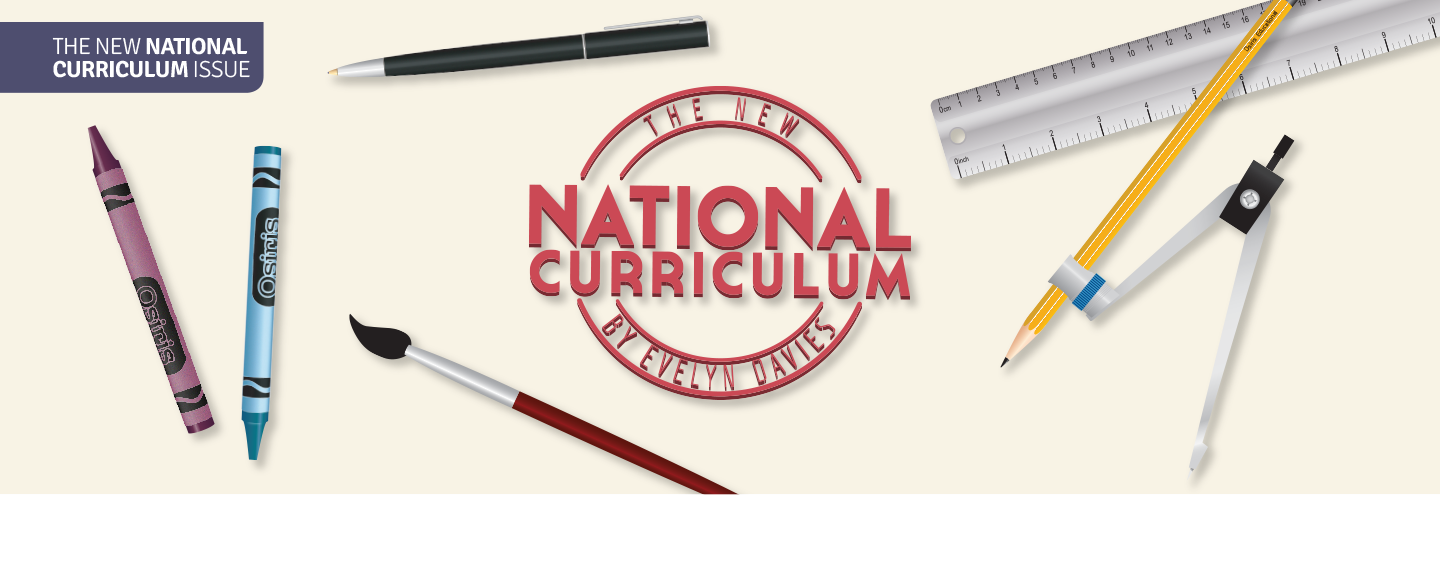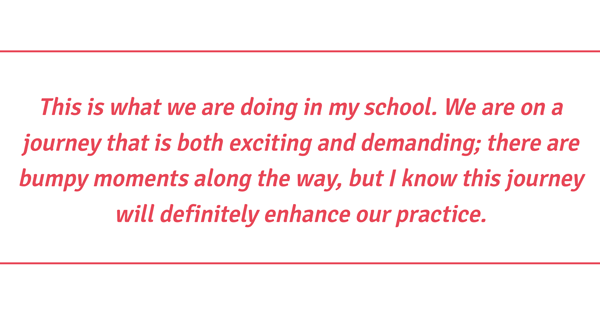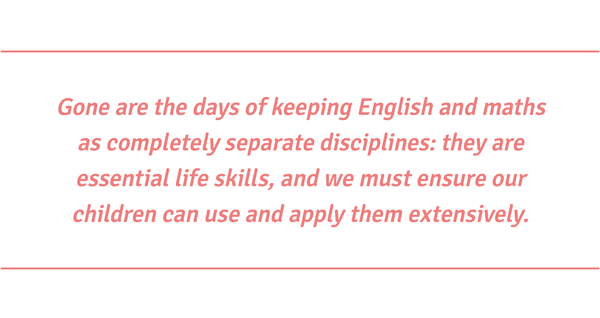Evelyn Davies discusses the new National Curriculum and how she, as a headteacher, is inspiring her staff to embrace and love it.
Headteachers could be forgiven for feeling downcast and thinking, “Oh no … here we go again, another ill-thought-out government directive†when it comes to the new National Curriculum. After all, only a few months ago we received a box of spiral-bound documents and were informed that we had an additional staff training day in order to get the “Rose Curriculum†off the ground!
So now we’ve gone from the “Rose†to the “Gove†curriculum, which upon reading looks like a trip back in time to the days of a more traditional and content-driven curriculum. Here we are, then: with this new curriculum and little time to set it all in motion.
I see part of my job as head teacher to translate these government directives into something not just manageable, but inspirational, motivational, irresistible and meaningful. In my view, that’s the difference between management and leadership: it’s creating the vision and bringing people along with you.
So I’ve said to my staff that we can either FWMG (can you guess, we all love abbreviations in education): “Fret, Worry, Moan and Grumble†…or we can GBH: not commit grievous bodily harm, even though one may be tempted to do so, but “Grab the Bull by the Hornsâ€, and use this as an opportunity to re-evaluate our core purpose and values, and reshape our curriculum accordingly.
We’ve started by redrafting our aims for our curriculum. We all know what we want our children to become: confident, capable, caring, talented individuals who have the knowledge, attitude, skills and values to lead rich and fulfilling lives. So let’s be clear and specific about how we plan to achieve these aims.
As I’m in a large, three-form entry primary school, my teachers work in curriculum teams – we call them CITs (Curriculum Innovation Teams – sorry, another abbreviation). I’m encouraging them to think outside the box, and be innovative and creative. The CITs are all busy beavering away at getting to the heart of their subject, ensuring they understand what is really distinct about their discipline and how this can be taught in an authentic way. Children need to be able to understand what is distinct about each of the different subjects so that they can begin to act as historians, mathematicians, artists etc. and ask the appropriate key questions using subject-specialist language, thereby enabling deeper learning and discovering their own individual interests and talents. In their topic learning, they should understand which subjects are the core focus as well as being able to see how they are interconnected, and how skills and knowledge from different subjects can be used and applied in different contexts.
My favourite acronym in school (and I promise this is my last in this article) is KIS: “Keep It Simpleâ€. To this end, the CITs are producing a straightforward one-sided sheet of A4 summarising the core essence, key questions, vocabulary, skills, and English and maths opportunities within their subject. Each CIT will be presenting their A4 sheet in a five-minute nugget at our Friday business meetings next term on a rota basis. A draft example of one is attached below.
Incidentally, I wholly agree with the emphasis on children using and applying their English and maths skills broadly in all subjects. Gone are the days of keeping English and maths as completely separate disciplines: they are essential life skills, and we must ensure our children can use and apply them extensively.
A good and creative curriculum
Our next stage as a staff team is to review what makes a really good, creative curriculum with deep transformative learning opportunities. We are planning a training day in June to get us all discussing some of the key features: the exciting hooks/entry points into learning; the exit points and end products which children can proudly share with their parents; the enterprise and challenge projects, trips and visitors; and first-hand, practical experiences. It’s getting us to ask ourselves the question: “If you put yourself into a child’s shoes, what would get you skipping into school each day?â€
For English and maths we are revisiting our end-of-year outcomes and amending these to take account of the greater expectations. These will be drafted into “I can†statements so that the children can use them to review their own learning and challenge themselves with next steps. They will be stuck into exercise books as constant reminders, while also providing a helpful guide to teachers in terms of marking and feedback.
Finally, we’ve decided to review our planning processes. For us it’s about deciding who and what the planning is for, and how we can ensure it meets our aims. It needs to enable deeper, high-quality learning which challenges each individual child and ensures effective progress, while also not being too time-consuming or complex for teachers to do.
Overall we’re not changing too much of our current approach. It’s more of a tweaking, one we call “A Journey Around the Worldâ€: a global, thematic approach based on what the teachers and children really want to learn about and discover together. The new curriculum can be adapted to our basic concept.
Mr Gove delivered a speech to teachers and headteachers at the National College for Teaching and Leadership in April 2013. In it he said: “No national curriculum can ever or will ever be right in every circumstance for every school. That is why all schools can ask to dis-apply any aspect of the national curriculum if they feel they can do something better and more appropriate for their children, whether that means tailoring it for pupils with particular needs or experimenting with a different approach to drive up outcomes.†We have taken him at his word and are sticking to what we know works for us and our children.
Let’s not limit our thinking, but instead encourage our teachers to “GBH†and teach a curriculum we know will inspire. SR




